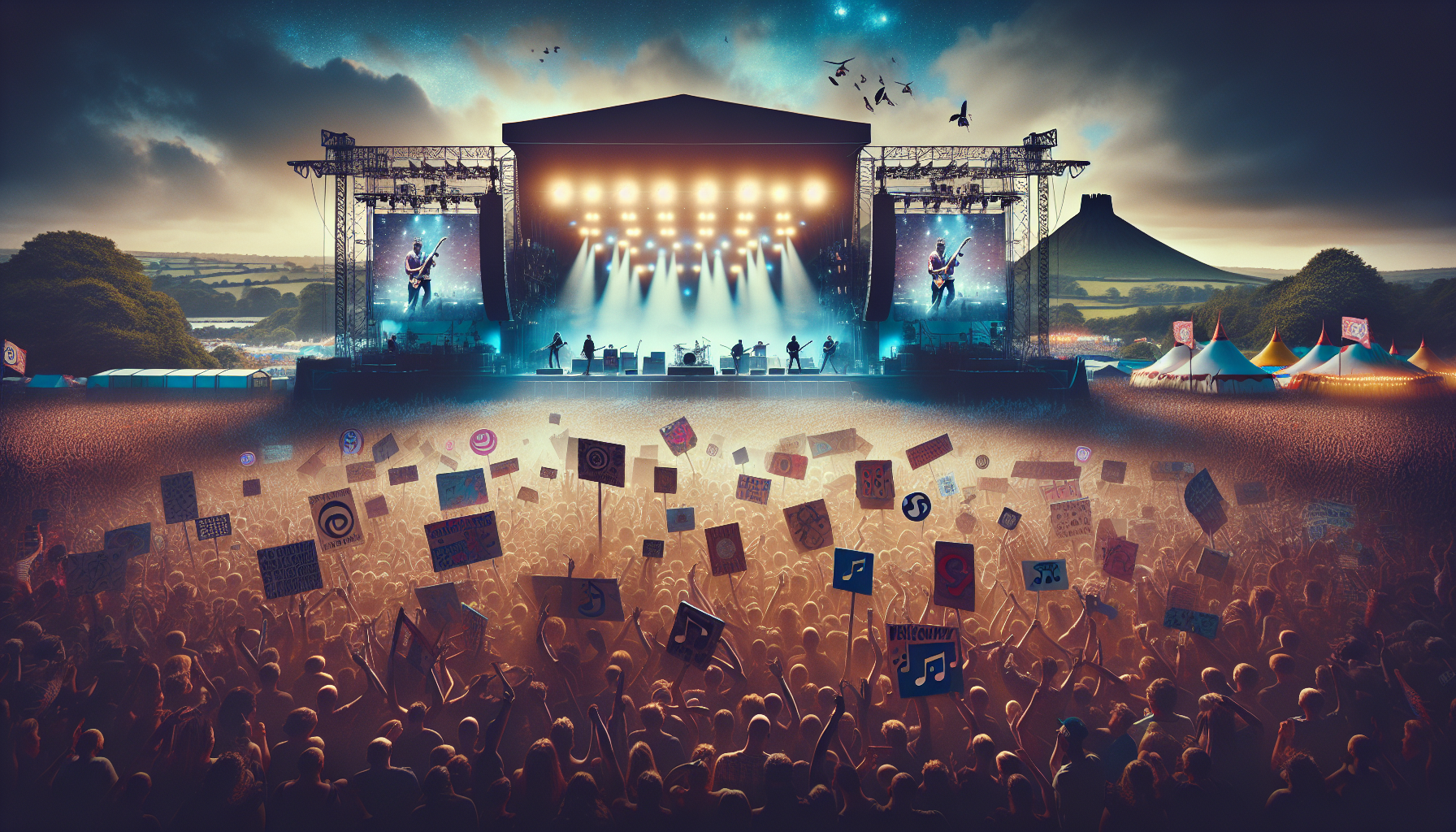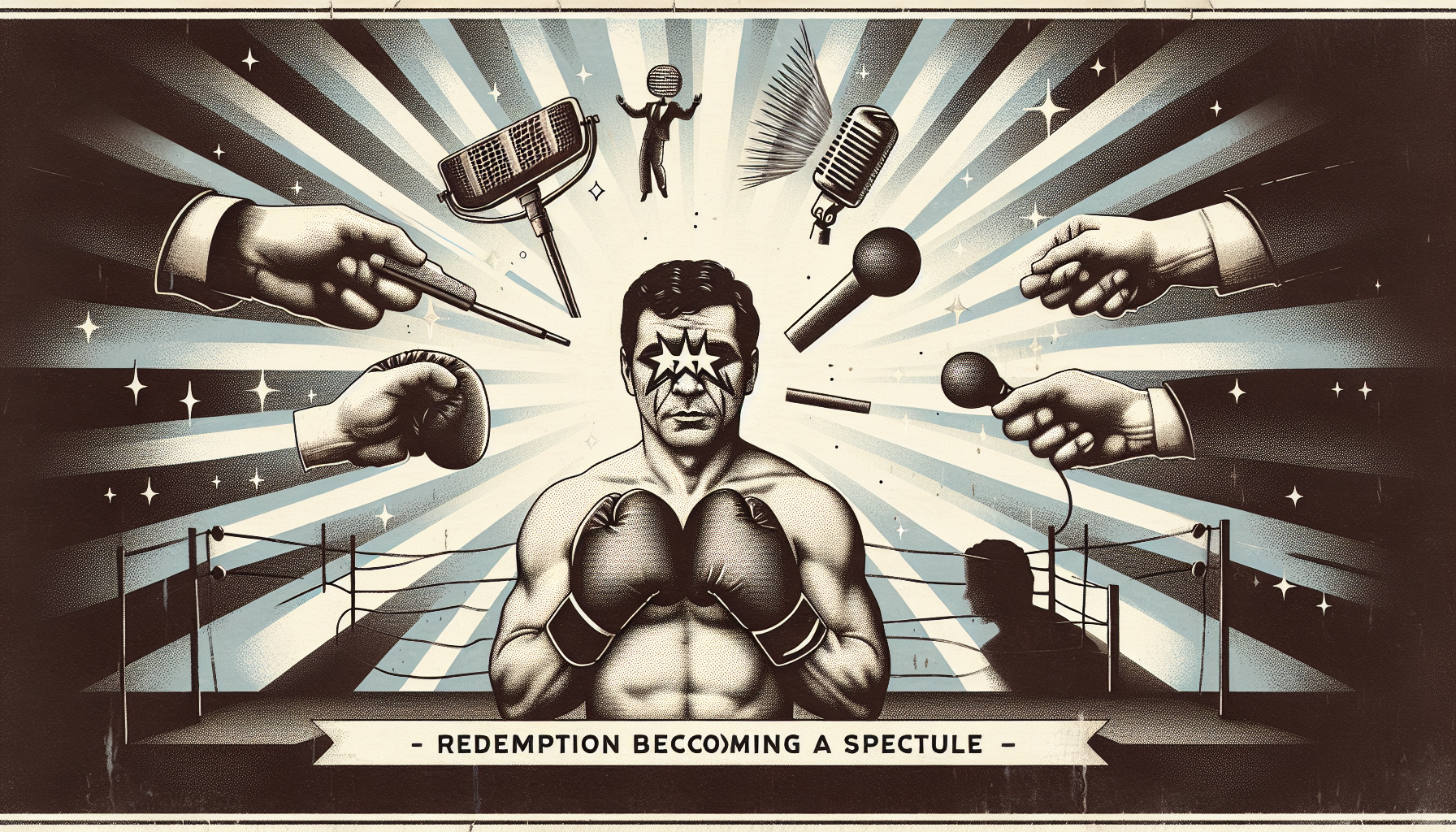Title: Amplified Voices: Navigating the Thin Line of Art, Politics, and Responsibility at Glastonbury
Dear Readers,
In the dance between art and controversy, sometimes a mic becomes more than just a conduit for music; it becomes a catalyst for discourse, dissent, and, occasionally, disquiet. When performances transcend entertainment to ignite national debates, we find ourselves witnessing more than spectacles—we are witnessing societal reflections.
Enter Bob Vylan and Kneecap at the iconic Glastonbury Festival.
On June 30, 2025, amidst the fields of Somerset and under the watchful eye of the BBC's cameras, these acts delivered more than beats and lyrics—they delivered political lightning rods. A day later, Avon and Somerset Police announced a criminal investigation, scrutinizing whether expressions on stage amounted to public disorder. When lyrics lead to legislative discussions, it's clear we're in territory that demands a deeper dive.
Unpacking the Festival Fallout
The acts on trial? Bob Vylan, the English punk-rap duo, known for their raw and unapologetic commentary and Kneecap, a band that speaks with a pro-Palestinian, political tongue. The incident in focus? Bob Vylan's frontman, Pascal Robinson-Foster, also known as Bobby Vylan, leading a chant critical of the Israel Defense Forces. The aftermath? A spectrum of reactions from government halls to social media feeds, echoing disapproval to support.
The BBC faced immediate backlash for broadcasting the performance live, questioned for not pulling the plug on the controversial content. Culture Secretary Lisa Nandy voiced her disapproval in Parliament, igniting questions about editorial responsibility and the line between free speech and hate speech.
When Performance Meets Politics
Musicians and artists walking the tightrope between expression and imposition isn't new. We've seen it with bands like Rage Against the Machine and protest songs that have become anthems for movements. However, when the stage is Glastonbury—a bastion of cultural expression—the stakes feel infinitely higher.
Bob Vylan’s chant wasn't just a critique; it was a bold political stance—one that some perceived as antisemitic. The BBC acknowledged the sentiment, pledging to reevaluate its guidance on live broadcasts. This isn't just about a single performance; it's about discerning the fine line between artistic freedom and societal responsibility.
The Global Ripples of Local Chords
The reverberations didn't stop at Britain's shorelines. U.S. visas were revoked for Bob Vylan, with Deputy Secretary of State Christopher Landau emphasizing that incitements of violence and hatred wouldn't find a welcome in the U.S. The message was clear: in today's interconnected world, words spoken on an English stage echo on international plains.
It's a narrative repeating through history—music as a medium for political statements. But at what cost? Kneecap, highlighted for their politically charged performances, find themselves under similar scrutiny, albeit with added layers of legal complexity.
Articulating the Controversy
In these moments, we must ask: Should art shield itself under the umbrella of free speech, or should it bear the weight of consequence? Bobby Vylan maintains that his lyrics were far from a call against people, but a rally cry against militaristic actions. It's an explanation met with both applause from some and ire from others.
In his video statement, Bobby Vylan asserted that a call against an army isn't a call against civilians—a nuance often lost in the roar of political debate. It's here we see the challenge of artistic expression: the intention may be just, but perception wields its power indiscriminately.
Looking Through the Stage Lights
So, where does this leave us, the audience, the observers? This incident, like so many before it, isn't just about isolated performances; it's about a larger dialogue. It challenges us to think critically about the role of art in political discussion and the responsibilities that accompany powerful platforms.
As we continue to tune into festivals filled with vibrant art and vocal activism, we must remain vigilant. Not just in seeking to understand the messages being delivered, but in recognizing the power dynamics at play. Artists like Bob Vylan and Kneecap force us to question, to listen, and most importantly, to converse.
Until next time—embrace the echo, question the source, and discern the dialogue.
Yours in the rhythm of reality,
A Conductor of Controversy and Culture

